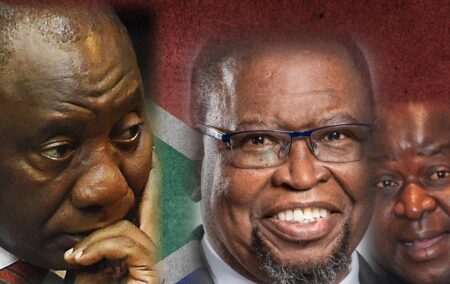The Cabinet reshuffle ‘sees the government consolidating an orientation that is quite at odds with reform and only reinforces state-directed economic planning and related dogma’. This is outgoing IRR CEO Frans Cronje’s take on the ministerial changes President Cyril Ramaphosa made this week.
In the following Q&A, Cronje elaborates on his analysis.
Daily Friend: What is the significance of Tito Mboweni’s departure?
Frans Cronje: Mboweni both was fired/resigned because he disagreed with how much money the government was spending in the absence of policy reforms.
He was a rare thing in the Cabinet as a minister willing, for half the day, to countenance sweeping labour, empowerment, and fiscal reforms. That he is the most prominent victim of the reshuffle gives the lie to the narrative that the reshuffle marks a step closer to reform.
Daily Friend: What should we make of his replacement in Enoch Godongwana?
Frans Cronje: Godongwana was hired because he will be less resistant to ANC spending plans – eyeing pension funds and pushing for asset prescription and so on – and will not press for ideologically unpopular reforms. Beware the media narrative that he is a great reformer. There is little basis for that. Rather, he is good at placating concerned investors.
Daily Friend: Gwede Mantashe’s performance has been widely questioned, yet he remains ….
Frans Cronje: Mantashe stays on, despite being hopeless and hostile to reform, given his importance as a Ramaphosa ally, meaning that internal ANC factionalism continues to trump a national reform agenda. I read the unchanged labour and education portfolios, both staffed by ideologically motivated anti-reformers, in the same way. Read the latter portfolios as reform canaries, given that without labour and education reforms, a substantive South African economic recovery is not possible.
Daily Friend: What explains Bheki Cele’s survival in the wake of his ministry’s demonstrable incompetence less than a month ago?
Frans Cronje: The fact that Cele stays on despite having been the one minister most responsible for bungling the response to the looting and arson that broke out in KwaZulu-Natal and Gauteng less than a month ago gives the lie to the idea that the reshuffle was prompted to address security-cluster failures.
Daily Friend: What, then, does the reshuffle say about the man who crafted it, President Cyril Ramaphosa?
Frans Cronje: On all four counts, this reshuffle does not resemble the bold move towards reform that it is being billed to be. You might choose to think of Ramaphosa’s Cabinet announcement as you would of a man sitting back-to-front on a donkey – for a moment it looks as if he is riding towards you (or, in this case, towards reform), but look closer and you realise he is in fact riding further away.
In my opinion, this reshuffle sees the government consolidating an orientation that is quite at odds with reform and only reinforces state-directed economic planning and related dogma.
My call is that no bold reforms will follow from the reshuffle, and that investment, growth, and job-creation rates will continue to underperform emerging-market norms by a considerable extent, while the fiscal position will slump as the commodity price boom abates.
If you like what you have just read, support the Daily Friend

